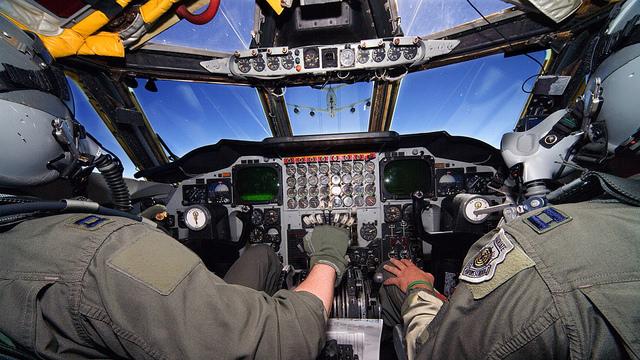
Sea State
South Korea launched its newest submarine—the Lee Beom-seok—at a ceremony last week. Named after a famous Korean resistance fighter, the Lee Beom-seok is the eighth of a planned nine Son-Won-II-class diesel electric submarines. Based on the German Type-214 submarine, the Son-Won-II-class displaces 1,800 tonnes and is equipped with air independent propulsion systems. The launch of the Lee Beom-seok comes as South Korea races to increase the size of its submarine fleet in response to North Korea’s fleet of 70 submarines. North Korea’s submarines have been quite active recently; one launched a ballistic missile earlier this year while another is thought to be responsible for sinking a South Korean corvette in 2010.
Secretary of the US Navy, Ray Mabus, announced the name of his service’s next amphibious assault ship and it’s sure to please World War II aficionados. Named for the famous campaign in which American, Australian and New Zealand troops took back the island of Bougainville from the Japanese; the third ship of the America-class will be named the USS Bougainville. The new ship will have a well deck for amphibious operations. The two other America-class vessels—the USS America and the USS Tripoli—don’t have that feature, and are rather optimised for airborne operations using helicopters and F-35B fighters.
Flight Path
US military pilots may soon have the pleasure of robotic company in the cockpit. DARPA is developing two Aircrew Labor In-Cockpit Automation System concepts that will autonomously operate aircraft and offer advice to human pilots. You can check out the concepts being tested by Aurora Flight Sciences (with robotic arm, here) and Sikorsky (without robotic arm, here).
You’d be forgiven for not keeping an eye on our own backyard last week, given the stateside distraction with a capital ‘D’. Last week, Australia’s Minister for Defence Industry announced that it has secured a role in the deep maintenance component repair responsibilities for the US F-35 Joint Strike Fighter. Between 2021 and 2025, the workload will be shared across the Netherlands, the UK and Australia. From 2025 onwards, Australia will step up its responsibility for 64 out of 65 components in the Pacific region. BAE Systems will play a leading role in sustaining the program in Australia. Initial contracts are estimated to be worth between AU$80 and $100 million.
Trump’s election to the Oval Office has produced uncertainty around the future… of the aerospace industry. This Aviation Week podcast provides some interesting analysis on federal budget pressures, entitlement programs, commercial and business aviation market and ‘making America’s military great again’.
Rapid Fire
The Australian Army is a step closer to fielding its next generation Hawkei vehicles, with Defence receiving the final two of an initial run of 10 test vehicles on Monday. The armoured patrol vehicle is being built by Thales in Bendigo, Victoria under a $1.3 billion contract. The Hawkei is strong enough to protect soldiers against increasingly destructive IEDs, but light enough to be transported by ADF helicopters. The vehicle’s other features are on show here, and you can watch a test run here. Initial production is due to commence in early 2017, with full-rate production in 2018.
An internal UK Ministry of Defence document leaked to The Telegraph earlier this month revealed concerns over the comparative advantage of Russia’s new Armata ‘supertank’. The US Army is also looking to enhance its combat vehicle’s capabilities. Lieutenant General H.R. McMaster of the US army examines the unique stall in US ground combat vehicle development.
Last Thursday, Aurora Flight Sciences announced the next phase of its Autonomous Aerial Cargo Utility System program: unmanned helicopters. A UH-1H Huey helicopter would be fitted with their Autonomous Aerial Logistics System to enable rapid cargo delivery at the request of ground troops. View the concept video here. It’s to be hoped that they don’t decide to use rotary wing drones to visit the local Bunnings for a sausage sizzle.
Zero Gravity
Luxembourg has adopted a law to allow the commercial extraction of resources from near earth objects, like asteroids. The legal framework, which incorporates the Outer Space Treaty, doesn’t confer any sovereign ownership of space but regulates the authorisation and supervision of space-mining activities for companies.
Australia has beaten several other bids to earn hosting rights for the Committee on Space Research convention in 2020, which Minister for Industry, Innovation and Science Greg Hunt has called ‘a major win for Australia’. Securing the event is seen as recognition of Australia’s role in space research globally and a chance to pave the way for an Australian space agency.
How will the Trump presidency change US space policy? Robert Walker, Trump’s space advisor, has shed some light on what that might look like with a nine-point plan. The plan would reinstitute a National Space Council under the Vice President to coordinate all US space efforts. Walker has stated that investing in America’s Space program is an existential necessity as it competes with other major powers such as China and Russia. The plan is heavily focused on deep space exploration out to Jupiter at the expense of earth and climate science. The plan also details the next administration’s interest in developing hypersonic missiles and aircraft. Check out some further analysis on Trump in space here and here.